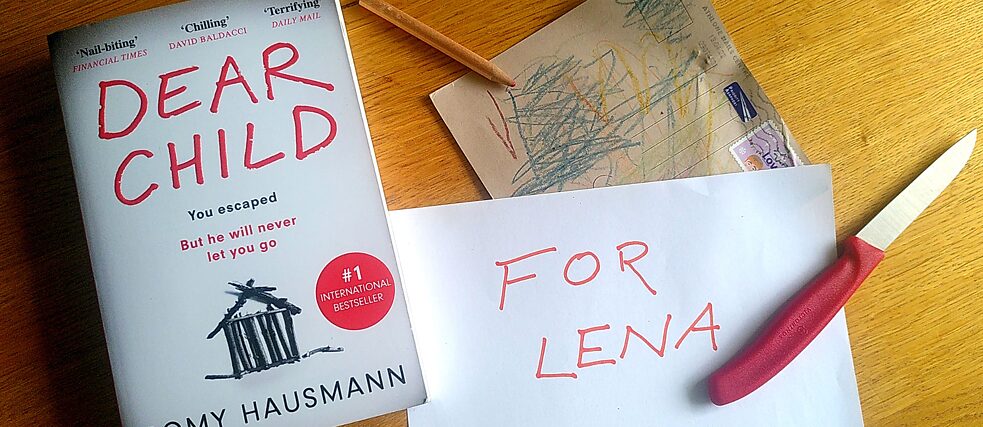May 2022
Romy Hausmann: Dear Child

If the twists of Gone Girl drew you in, take a moment to check out Romy Hausmann’s Dear Child.
The publication of Gillian Flynn’s Gone Girl shifted the literary landscape. A remarkably crafted thriller, with two narrators whose unreliability keeps the reader guessing until the end, the novel remained on the bestseller list for years, prompting a surge in thrillers centred around less-than-perfect female protagonists.
Whether the twists of Gone Girl drew you in, or you favour narrators you can’t quite trust, take a moment to check out Romy Hausmann’s Dear Child (translated by Jamie Bulloch), described by its publisher as “the twisty thriller that starts where others end”. A woman and her daughter are taken to hospital after a car accident, and as the hospital workers talk to the child, they – and the reader – are filled with more and more unease. The child, Hannah, insists that no one is allowed to find them, calmly describes the “recirculation units” that allow air into the family home, and whispers that her mother “wanted to kill Papa by accident”. That night, the police call Matthias and Karin Beck: they believe they have found their daughter, Lena, who has been missing for 4993 days.
The story is alternately narrated by the woman who has reappeared, Lena’s father Matthias, and Hannah. As the story goes on, a picture begins to build up – of the cabin in the woods where the family lived, and the man who liked to play God by keeping them captive. But every time the reader or the characters think they have solved one piece of the puzzle, new questions begin to emerge. Is the woman who’s been found really Lena Beck – and why don’t her memories match up with what the police have found? Is Matthias’ dedication to Lena and Hannah – and his relationship with the tabloid press – as straightforward as it seems? And what happened to Hannah’s younger sister? The characters’ paranoia and trauma feed into the narrative, creating an uneasy atmosphere in which no one is to be trusted.
Dear Child is a refreshing read in a genre which has been accused of having a problem with misogyny, often using violence against women as little more than a plot point. Hausmann’s protagonist is far from perfect; instead, she’s a three-dimensional and believable character, driven to save herself and others, yet consumed by survivors’ guilt and PTSD. Lena’s determination to “create secrets and a private life” for her children, bringing “the world into our four solid world” sparks a whole new sense of agency. Hausmann also probes the victim-blaming which is rife in discussions of rape and assault – Lena is haunted by the memory of asking her girlfriend why she hadn’t fight back when being raped, and Matthias bitterly follows the tabloids’ dissections of his daughter’s party lifestyle after her disappearance.
Hausmann’s thriller is a hard book to describe without offering spoilers – the kind of book you can read in a day only to finish it and eagerly press it into an unsuspecting friend’s hand. It’s an obsessive, addictive read, full of surprises that I genuinely didn’t see coming.
About the author
Annie Rutherford is an incorrigible bookworm and Jill of all (word-based) trades. She is the Assistant Festival Director at StAnza (Scotland’s international poetry festival), a German-English literary translator, and runs Lighthouse Bookshop’s Women in Translation book group, among other things. She has been known to read while cycling (she does not recommend it), and can spot a misplaced apostrophe at a distance of fifty yards.Glasgow library: Reserve the original German title.
E-Library: Borrow the original German title.
Find out more about the blog.
Book Blog Overview